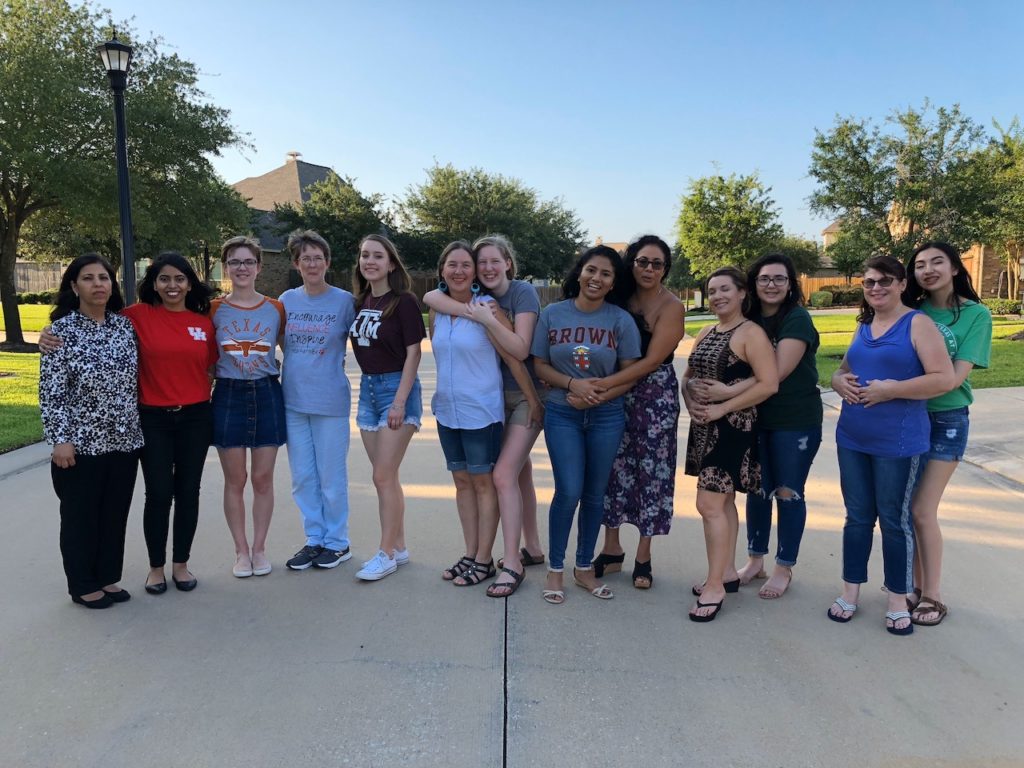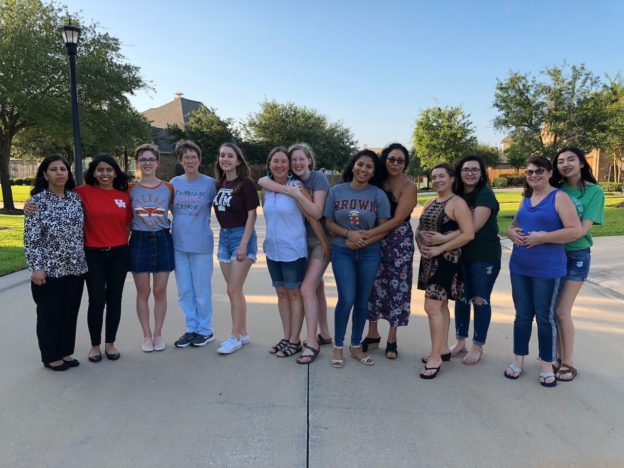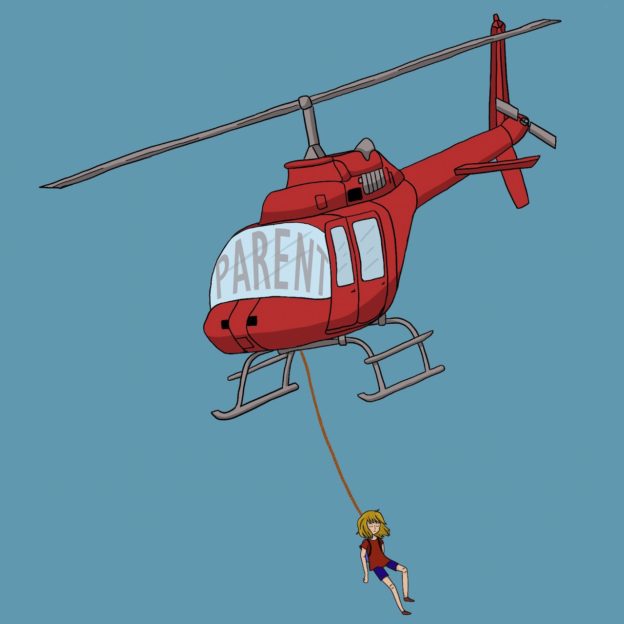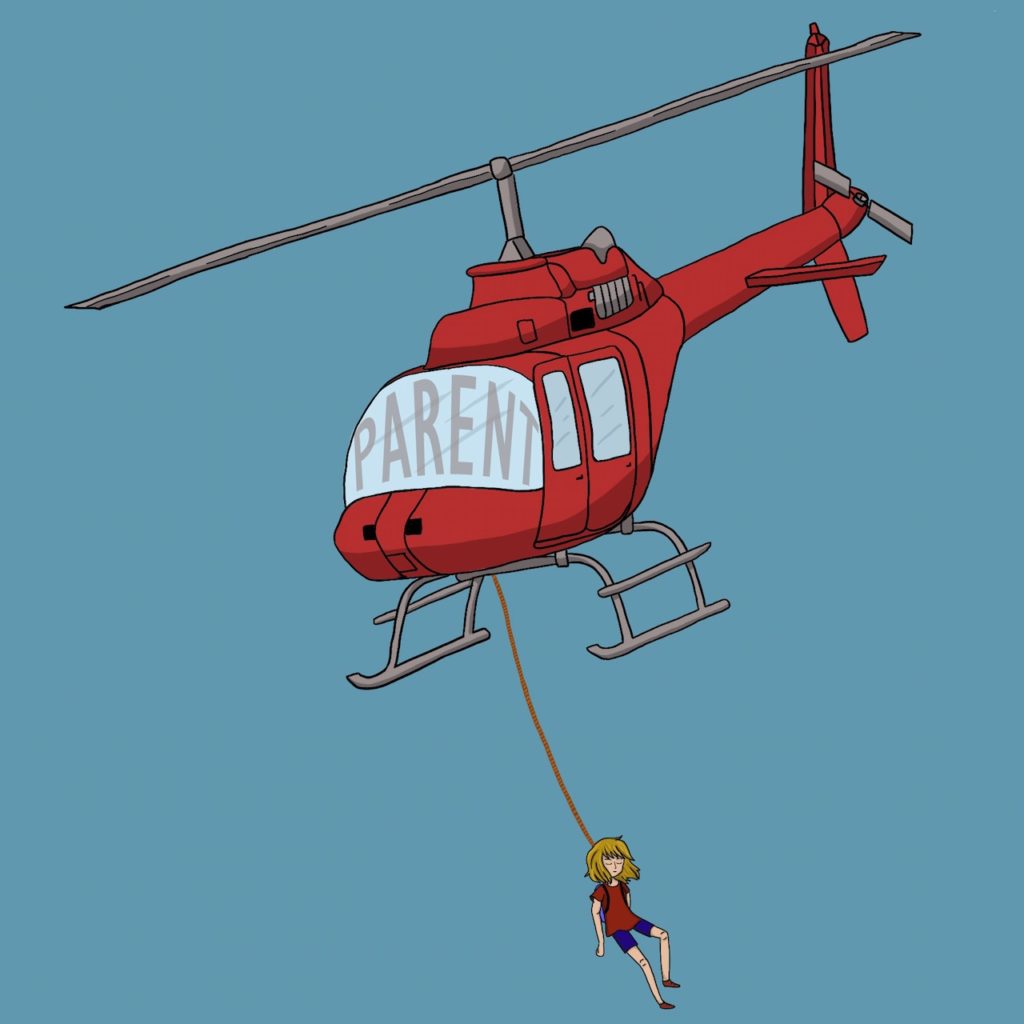
If your kids are like mine, they grew up with plenty of what they needed. Well, don’t get me wrong. Ours had plenty of chores to do. They volunteered a ton. They had lots of homework and extracurricular activities that required personal responsibility and time management. But still, we did a lot of stuff for them. I made doctor’s appointments, negotiated the bills, cooked hundreds of meals, which they gladly consumed, washed endless loads of laundry, and goodness, the “taxi” driving we did for them. Meg Meeker, MD, a renowned pediatrician and parenting expert said, “Never do for your kids what they can do themselves.” I think that is great advice. Why? Because as parents, we already, inherently complete a ton of tasks for our children that frankly they can’t do for themselves, at first. But, if we never let them do anything on their own, (age and stage appropriate), we are doing them a ginormous disservice. Who knows? Maybe even putting their life at risk. Scary stuff I know.
It became magnanimously apparent to me, this need for teaching our children self-advocacy, when we started parenting young adults.
Example 1: Recently, our youngest daughter, a college sophomore, was immersed in a very difficult situation at her job. The truth was written on the wall in plain language. She needed to confront a superior about some serious issues involving the amount of work and hours she and her co-workers were putting in. And she did. But she vacillated for several weeks before calling that meeting, while many of her young co-workers waited in the wings to see the outcome of her courage.
That’s the irony of self-advocacy. Sometimes it just effects the one taking a stand. Still, other times, self-advocacy impacts a whole lot of other people.
Example #2 My middle daughter recently had a serious of doctors’ appointments necessary to treat a serious dermatological issue she was having. Newsflash. Over 18-year old’s have to handle all their own medical needs, appointments, and prescriptions. Because, well, they are of legal age to do so. No one is going to talk to Mom or Dad without a special release of information on file. It doesn’t matter if they are in college and still on your insurance plan. Same for the bursar’s office at their respective college. Doesn’t matter that you are dropping 1000’s of dollars into an account in your child’s name each semester. You don’t have an automatic right anymore to know a thing about their tuition bills or their grades. So, when my girl left the doctor without gathering important information concerning her follow up appointments, logistical chaos ensued. It was a hard lesson learned about the need to advocate for herself.
The truth is I know adults much older than my 19 and 21-year-old who would never undertake this type of necessary confrontation. They won’t confront a boss with professionalism and confidence to discuss ongoing problems. And they don’t ask the doctor appropriate questions that concern their own health and welfare. Is it such a surprise then, when our young adults struggle with self-advocacy?
In the current pop culture that our children and young adults live and work, it has become more and more of a challenge to expect our kids to advocate for themselves.
Why?
I’m going to submit two highly plausible reasons for your consideration.
1 Because we DO and we BUY way too much for them when they are growing up. We do stuff that is far outside the scope of what parents should and should not do for their kids. We speak for them when we shouldn’t. Teachers, coaches, youth ministry leaders, doctors, restaurant staff, etc. We “handle” all of their personality conflicts for them! Furthermore, we often spend ridiculous amounts of money on them, (whether it is a special occasion or not), just because they want it? Year after year of that, and boom, you get a young adult whose appetite for self-indulgence can only be satiated with immediate gratification. He doesn’t know how to stand up for himself because his parents never allowed him to experience disappointment. If your kid has no framework for disappointment, that is going to make the real world an overwhelming place for them to survive. They will be out of our house sooner or later. Parents that is not the place or time we want our kids to begin negotiating disappointment.
2 It has become less culturally acceptable to teach our kids prevention. Prevention has become a dirty word for blaming the victim. Which is utter nonsense. For instance, it is critical that we teach our children self-advocacy when it comes to sexual activity or mixing drinking with their social life. We want to equip our girls and boys for what’s heading their way before it clobbers them like an oncoming train. I want my girl to have the tools necessary to maximize her safety and to avoid becoming a victim. That means teaching her prudent ways to manage her social media. It means teaching her that she is worth more than a “like” on a stupid phone. It means teaching her the importance of moderation in drinking alcohol, and the dangers of being drunk and incoherent in social settings. It means teaching her that indiscriminate sexual activity could inflict deep physical and emotional wounds that will leave an indelible mark on her life. We should understand that teaching our kids prevention, means that we are teaching them both self-respect and self-advocacy in a culture that is extremely shallow and unforgiving.
- Both now and/or later, our kids need to be able to:
- Order their own food without being rude to a waiter.
- Have a professional and grace filled confrontation with micro-managing bosses.
- Talk to their spouse about their personal needs in that relationship.
- Negotiate a doctor bill that does not sync with the corresponding explanation of benefits from the insurance company.
- Say NO! when they mean NO!
- Do for themselves all of the stuff that we have done for them all of these years, laundry, cooking, driving and more.
And they need to understand that they can advocate for not only themselves, but when and where necessary, they can intercede for another person.
Remember the “Me Too Movement”?
Of course, you do. We all do. Especially us moms. Our hearts broke as the respondents increased day by day by the hundreds of thousands. This sad state of affairs should inspire us as parents to teach our girls and our boys with gazelle intensity how to advocate for themselves and others. Hopefully, all that pain and suffering has not been lost on us. How many fewer, precious souls would be hash tagging “Me Too,” had they been taught more about healthy boundaries in their life and the paramount importance of self-advocacy?
We can and should equip our kids with the life skills needed for engaging in healthy conflict resolution and confrontation. We can and should equip our kids to speak up for themselves and others, not with arrogance or rudeness, but with professionalism, grace, and confidence. We can and should arm our children with the necessary tools for maximizing their safety and to avoid becoming a victim of someone else’s evil intentions.
We have a choice.
We can emphasize the importance of self-advocacy when raising our children. OR we can hope for the best without teaching these life skills. Clearly, there is no fool proof way of ensuring our child’s safety or success in life. But we can do better than the status quo. We can do better than what has been done up until now. We must. Our child’s physical and emotional health may be hanging in the balance.


